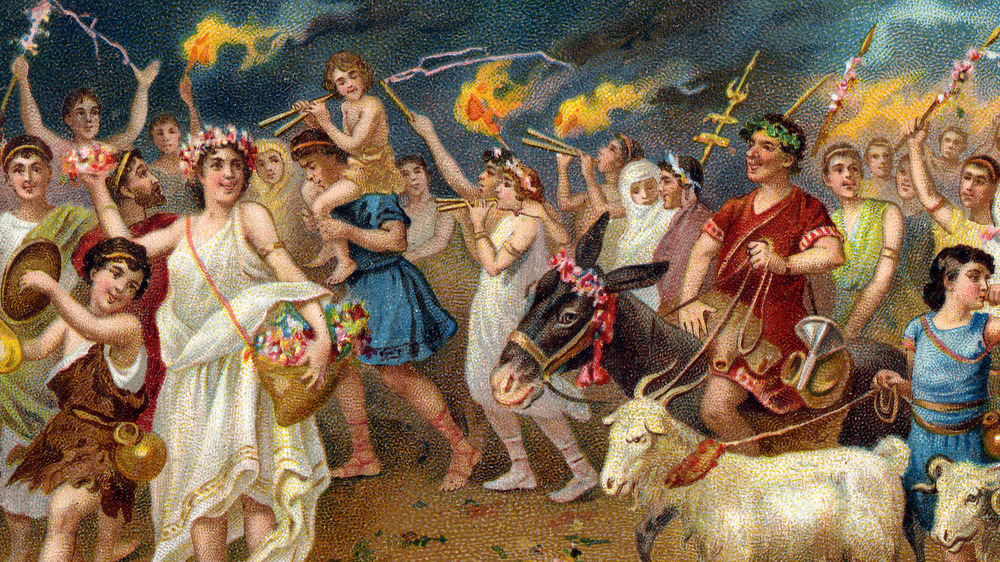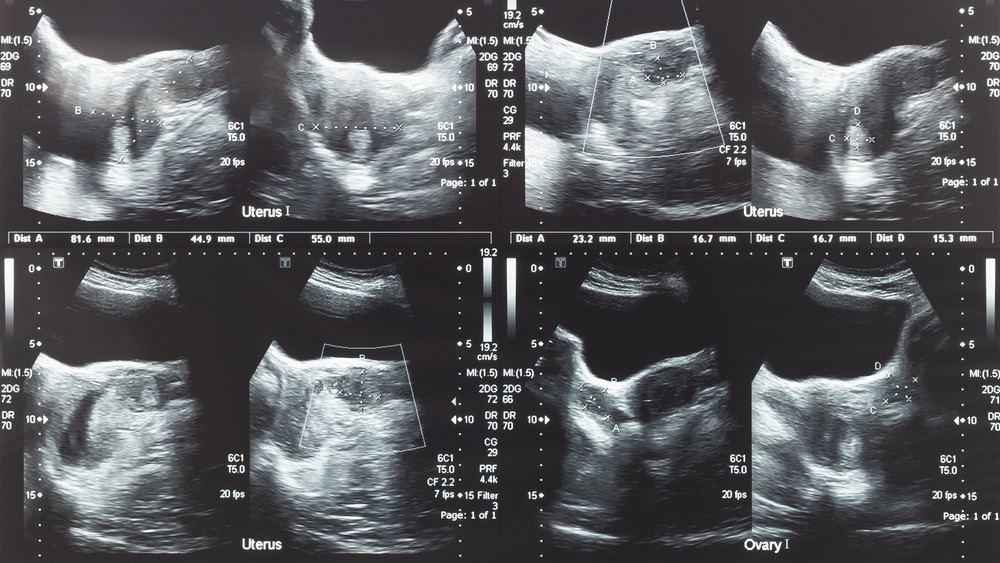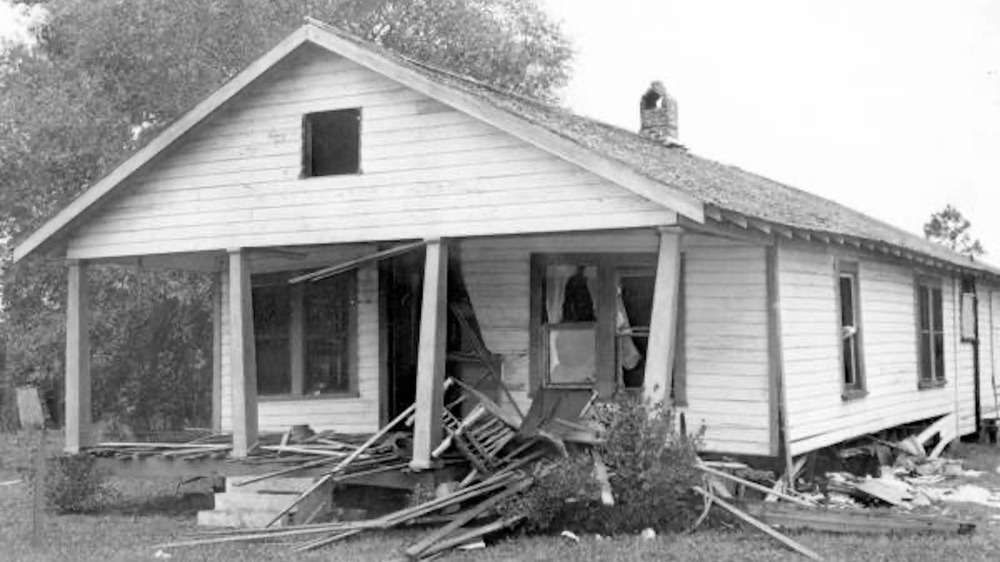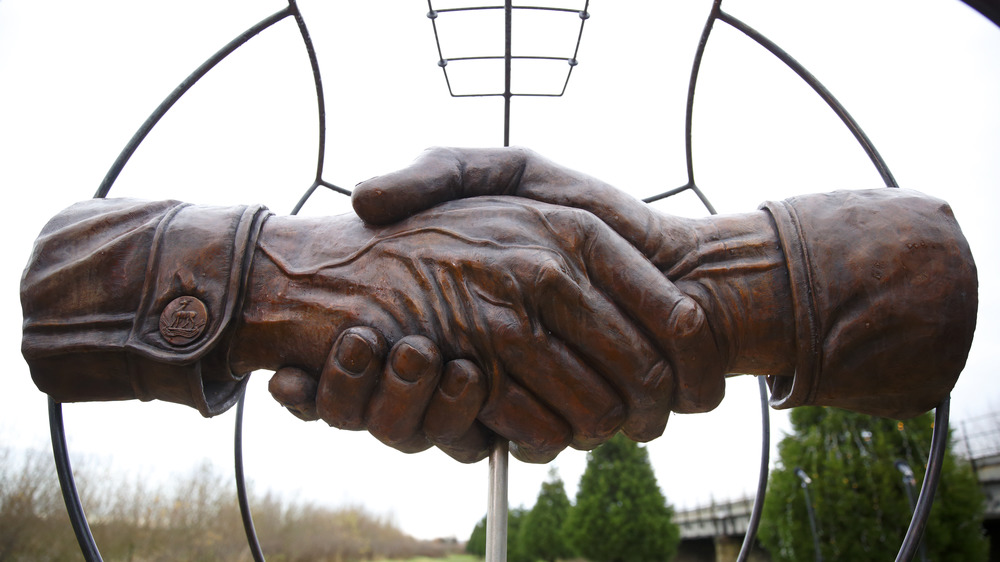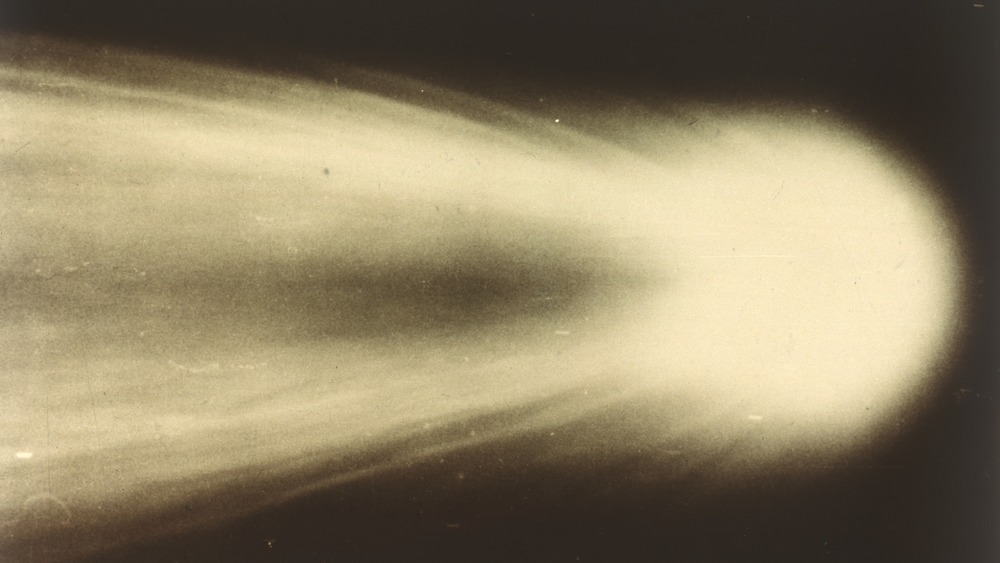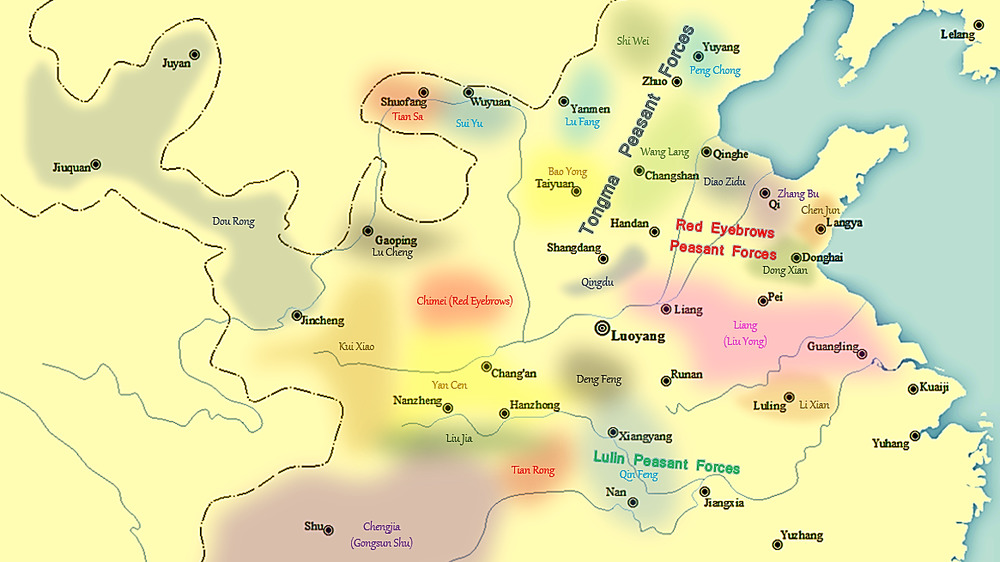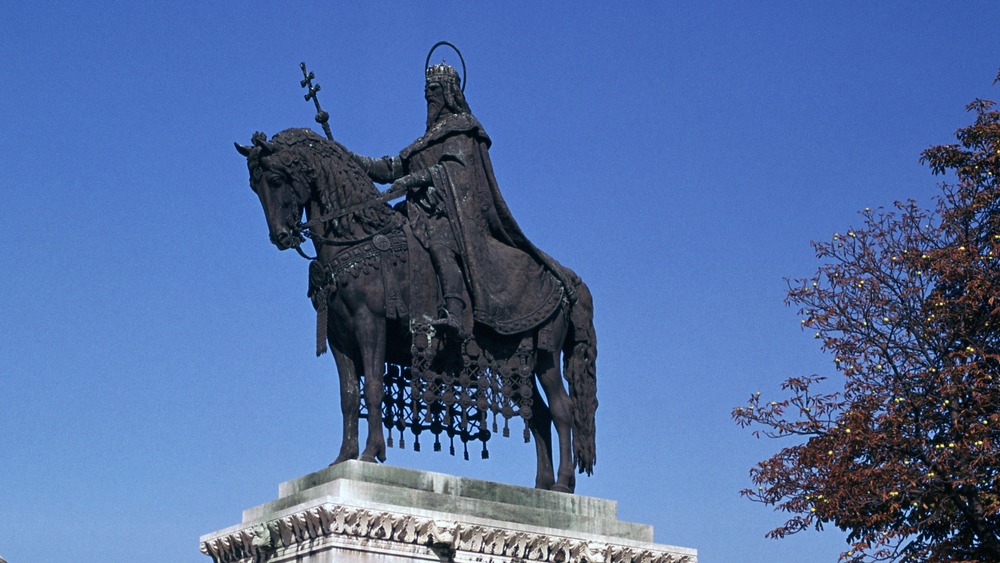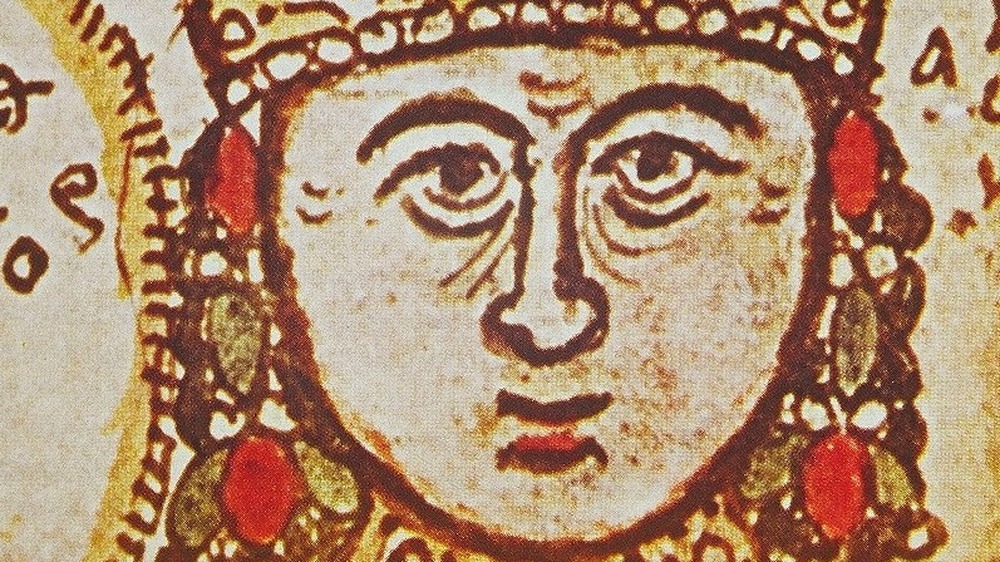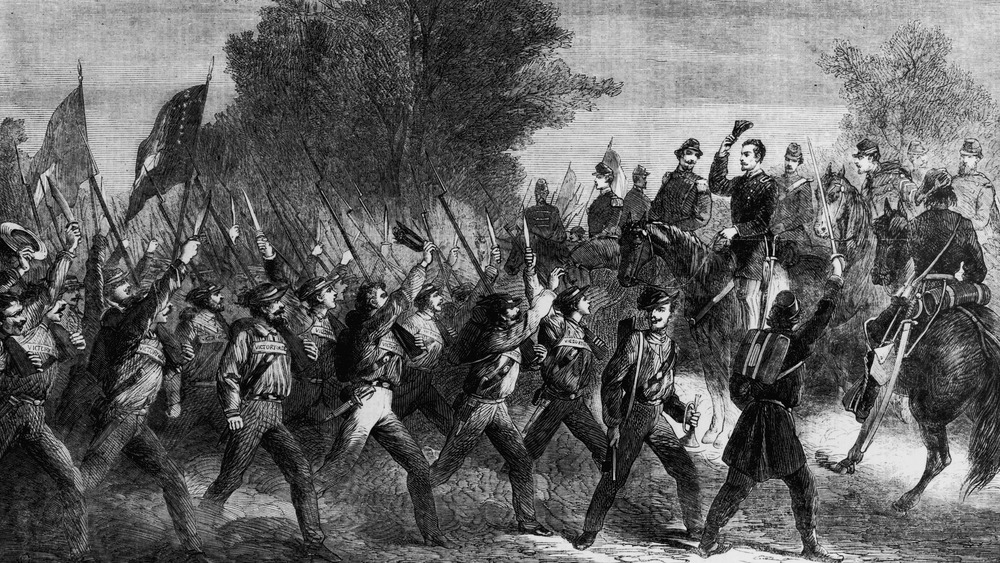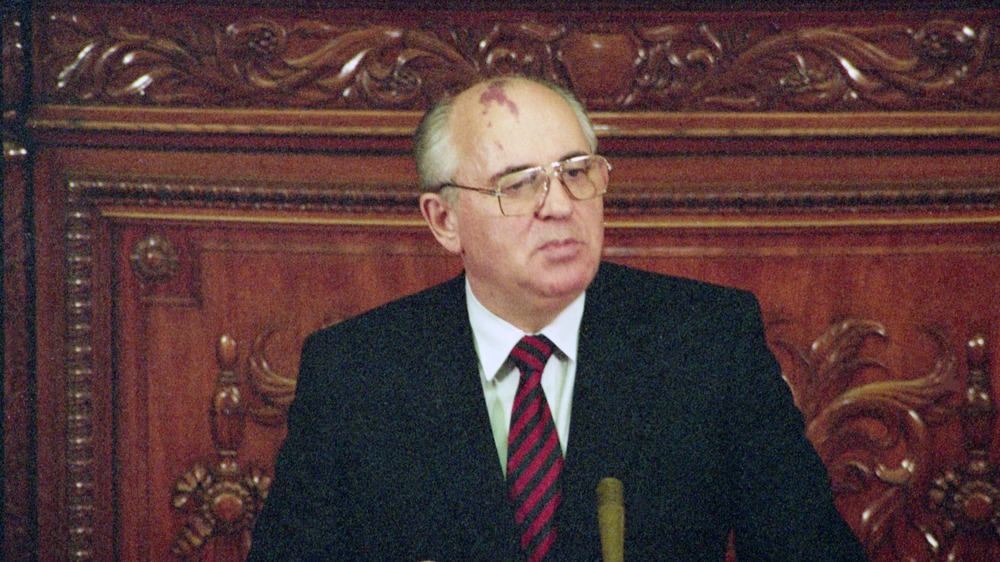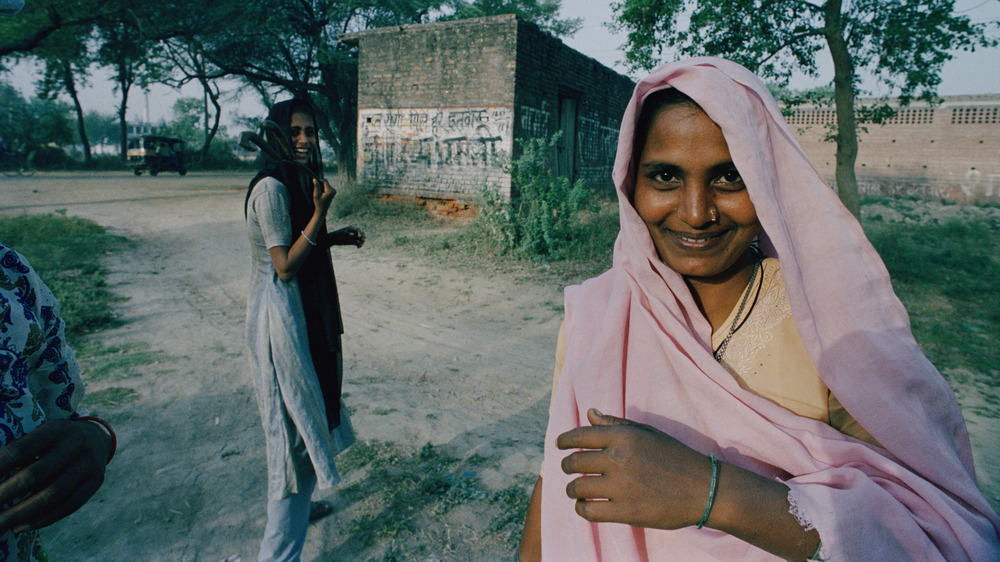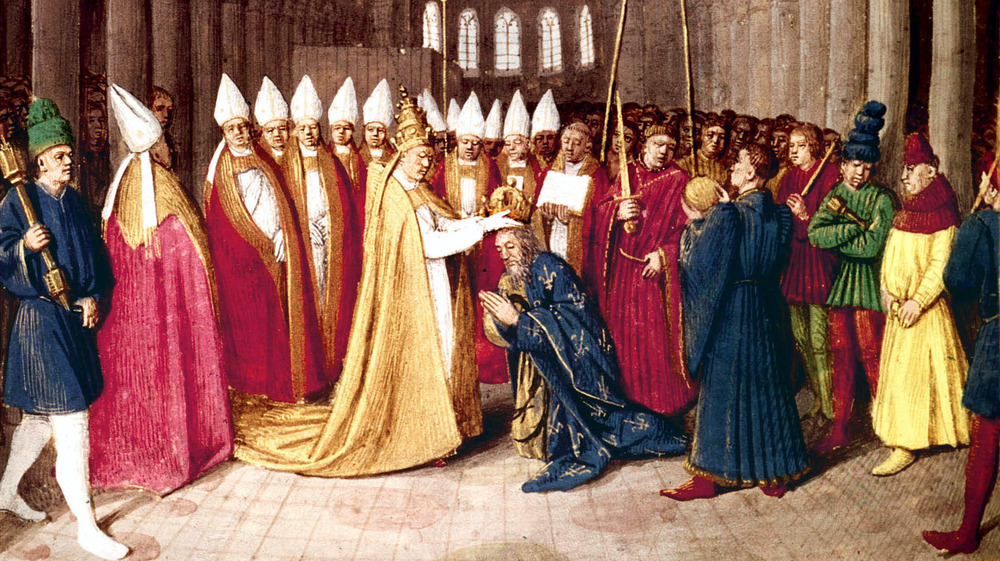The Craziest Things That Happened On Christmas Day Throughout History
Although some people associate December 25th with Christmas, there are so many different things that have happened on December 25th throughout history, some associated with Christmas and some having very little to do with it. With other events, it's unclear whether or not December 25th was deliberately chosen.
The first recorded celebration of Christmas occurred in the year 336 AD, but at that point it wasn't an official Roman state festival yet. At the time, Saturnalia was also celebrated around the same time, and as Christianity grew in popularity, the two celebrations were unified to make things easier. And within 2,000 years, almost every printed calendar started denoting December 25th as "Christmas."
And while Christians celebrated the birth of Jesus Christ on December 25th, as time passed the day accumulated more and more anniversaries of births, deaths, unifications, operations, pardons, and resignations. As a result, December 25th holds meaning for millions around the world, regardless of whether or not they have a Christian faith. These are some of the craziest things that happened on Christmas Day throughout history.
The first successful ovariotomy
Although there are some claims that Robert Houstoun successfully performed the first ovariotomy in 1701, the "first undoubted ovariotomy" was performed on Jane Todd Crawford on Christmas Day in 1809 by Ephraim McDowell in the United States. Crawford believed that she was pregnant and merely overdue, but after McDowell diagnosed her with an ovarian tumor, she agreed to a surgery to have it removed.
According to The Embryo Project Encyclopedia, McDowell removed a 22.5 lb. tumor from Crawford's left ovary without the use of anesthesia "or any antibacterial methods." Several men also gathered outside his home in the event that Crawford died from the surgery and they needed to avenge her death. Despite everything, five days later Crawford was alive and able to make her bed. She returned home 25 days after the surgery and went on to live 32 additional years.
Over the course of his career, McDowell performed 13 ovariotomies in total, eight of which were successful. Almost all of the women that McDowell operated on were enslaved Black women. By 1872, 42 years after McDowell's death, ovariotomies became "the fashionable treatment of menstrual madness, neurasthenia, nymphomania, masturbation, and 'all cases of insanity.'"
Christmas Day tragedies
Harry T. Moore and Harriette V. S. Moore were some of the first activists of the Civil Rights movement to be assassinated in the United States. On the night of December 25th, 1951, a bomb exploded in the Moore's house at 10:20 PM in Mims, Florida. Harry died later that night while Harriette died nine days later at the same hospital. According to The Florida Historical Society, the explosion was so loud that it was heard in Titusville, almost five miles away.
After the attack, ambulances refused to transport a Black person, so relatives drove Harriette and Harry 30 miles to Sanford in order to reach the closest hospital that didn't reject Black patients. Despite the fact that multiple investigations concluded that the bombing was committed by the KKK, the murderers have never been identified or arrested. Harry had long been a target, ever since he started working to register Black voters in the 1930s and later turned his attention to "fighting injustice in lynching cases," of which Florida had the most per capita compared to any other state at the time.
According to Equal Justice Initiative, five years later on Christmas Day, 1956, the KKK bombed the home of Reverend Fred Shuttlesworth, another Civil Rights leader. Thankfully, no one was seriously injured, but white supremacists tried to murder Shuttlesworth at least four more times over the course of his life.
Truce for Christmas Day
During the first Christmas of World War I, a seemingly remarkable thing happened. Soldiers on both sides of the front in France and Flanders came out of the trenches, put down their weapons, and celebrated Christmas together. Known as the Christmas Truce, this truce was actually highly illicit and unofficial. Countless officers voiced their disapproval and tried to make sure that such an event never took place again. However, according to the Imperial War Museums, there were "isolated incidents of soldiers holding brief truces" throughout World War I.
According to Encyclopedia Britannica, although the informal truce wasn't universally observed, it occurred along almost "two-thirds of the 30-mile front." Primarily adopted by British troops, there wasn't an equivalent version on the Eastern Front, since Russian Orthodox Christmas occurs in January.
The unofficial truce began on Christmas Eve, 1914 as the German troops started singing Christmas songs in the trenches. Soon, the two sides were serenading each other and passing back and forth whiskey and cigars. There are even reports of football games being played during the Christmas Truce, with at least four matches thought to have occurred between the armies. The soldiers knew the truce was temporary, but many sought to "preserve the peace at least until midnight." During the truce, George Eade had made the acquaintance of a German artilleryman. Upon departing, the German is reported to have said "Today we have peace. Tomorrow you fight for your country; I fight for mine- good luck."
Christmas Day comet
Although Halley's Comet has been repeatedly spotted throughout history, at first people thought that they were seeing a different comet each time. It wasn't until 1696, when Edmond Halley studied the sightings in 1531, 1607, and 1682, that he realized that it was the same comet coming back again. With this data, Halley predicted that the comet was visible from earth every 75-76 years and would return in 1758.
And according to "The Story of Halley and His Comet" by R.E. Wilson, on December 25th, 1758, Halley was proven right when the comet was once more spotted by the German peasant and amateur astronomer Johann Georg Palitzsch. Not only was this the first instance of the comet being accurately predicted, but it was also the first time that "any object other than a planet had been shown to orbit the sun." Halley had also come to his prediction with the help of Newton and his laws of motion, and as a result, the prediction became "one of the first successful confirmations of Newtonian physics."
Although Halley died in 1742 and didn't live to see his comet return, in honor of his accurate prediction the comet was named after him in 1759.
Reuniting China
After the fall of the Xin Dynasty, Emperor Guangwudi, also written Kuang-wu ti, waged war against the regional warlords and rebel forces throughout China from 26 AD to 36 AD. According to Dynastic China by Tan Koon San, although Emperor Guangwudi initially only ruled over parts of China, on December 25th in 36 AD he succeeded in reuniting China under the Eastern Han Dynasty.
By December that year, the Emperor Guangwudi's Han forces had already reached Ch'eng-tu, although they were on the verge of abandoning it since their supplies were running out. But then, Emperor Gongsun Shu, also written Kung-sun Shu, was wounded during an offensive attack on December 24th. Gongsun Shu ruled over Chengjia, an empire formed in 25 AD that rivaled Guangwudi's, and by 36 AD he was the last obstacle between Guangwudi and a reunified China.
Gongsun Shu died during the night of December 24th, and the next day, on December 25th, Ch'eng-tu surrendered, effectively making Guangwudi "the master of China" until his death in 57 AD. After 12 years of civil war, the Eastern Han dynasty lasted until 220 AD. And according to Military Culture in Imperial China by Robin D. S. Yates and Ralph D. Sawyer, much of this has to do with the fact that the Han dynasty was immensely concerned with "protecting the emperor and preserving the military might of the state."
Foundation of Hungary
Up until 1000 AD, Hungary primarily comprised principalities that were constantly warring with the Germans, Bulgarians, and the Byzantine Empire. But by the mid-900s, as a tepid peace began to spread between Hungary, the Germans, and Byzantium, Christianity also began to flourish as missionaries arrived from Germany.
And according to Encyclopedia Britannica, on Christmas Day in 1000 AD, Stephen I, also written István, was ordained king of Hungary. This is considered by many to be the first formalization of the Hungarian empire. After applying to Pope Sylvester II, King Stephen received the "Holy Crown of Hungary" from the papacy, affirming Hungary as a Christian kingdom. Pope Sylvester II also "extended paper protection to Hungary" while King Stephen converted his people to Christianity. Making mandatory the construction of churches, Stephen "treated the church as the principal pillar of his authority."
Stephen I went on to be canonized in 1083, 45 years after his death, and is recognized as the patron saint of Hungary. King Stephen's son Emeric, who had died in 1031, was also canonized at the same time as his father. Although King Stephen dissolved the various tribes as individual units and maintained a certain peace with foreign countries, "the fundamental social stratification [of Hungary] was not altered" and the system organized by Stephen I remained the foundation for Hungary's social and political structure for centuries.
Blinded on Christmas Day
On Christmas Day in 1261, Michael VIII deposed the 11-year-old John IV Laskaris, in an attempt to become the sole emperor of the Byzantine Empire. According to Encyclopedia Britannica, in 1258, Michael VIII was chosen to be John VI Laskaris' regent when John was 6-years-old.
But soon Michael VIII had his eye on the throne and after having John IV Laskaris blinded on Christmas Day, according to The Lost World of Byzantium by Jonathan Harris, the young boy was taken and exiled "to a castle on the Black Sea where he was to remain for the rest of his life." Despite this, John IV Laskaris ended up outliving Michael VIII, with the former dying in 1305 and the latter in 1282. Two years later after his death Michael VIII's son, Andronikos II Palaiologos, ended up visiting John in the castle to beg his forgiveness.
For blinding John IV Laskaris, Michael VIII was excommunicated by Arsenios Autoreianos, the Ecumenical Patriarch of Constantinople. Meanwhile, according to Sacred Precincts, edited by Gharipour Mohammad, "John IV Laskaris [lived] his final years as a blind monk, neither an emperor nor in any position to be handling diplomatic affairs."
A Christmas Day pardon
Although Abraham Lincoln had granted over 60 pardons during his presidency, Congress had believed that his initial plan for reconstruction and amnesty was too lenient. But after the Civil War ended and Lincoln was assassinated, President Andrew Johnson soon issued a Proclamation of Pardon and Amnesty, absolving many Confederate soldiers for their activities during the war. However, many Confederate officers such as those "indicted for treason and those owning more than $20,000 worth of property in 1860 had to compose a pardon petition" and apply to Washington, D.C. directly.
By June 5th, 1866, President Johnson had issued over 12,000 pardons. According to Pardon and amnesty during the Civil War and Reconstruction by Jonathan Truman Dorris, many of the special pardons issued to Missouri, Maryland, and Kentucky were given to people "who had left a loyal state to aid the Confederacy." This was primarily because they had never passed the Ordinance of Secession and weren't covered by paroles given under the terms of surrender.
Finally, on Christmas Day in 1868, President Johnson extended "unconditionally, and without reservation, to all and to every person who directly or indirectly participated in the late insurrection or rebellion, a full pardon and amnesty for the offence [sic] of treason against the United States, or of adhering to their enemies during the late Civil War, with restoration of all rights, privileges, and immunities under the Constitution and the laws."
Gorbachev's Christmas Day resignation
At 7:00 PM on Christmas Day in 1991, Mikhail Gorbachev resigned as the leader of the Soviet Union, his resignation speech broadcast live on television. By the time Gorbachev resigned, he'd already lost much of his power and by his own admission should have resigned earlier. A coup attempt in August had shown the camel that its back was already broken. And by December 21st, the evening news bulletin in the Soviet Union began by announcing that "The USSR no longer exists."
However, Gorbachev's resignation on December 25th was a highly symbolic act. According to The Washington Post, within half an hour the red Soviet flag was lowered from the Kremlin for the final time, with a white, red, and blue Russian flag rising in its stead.
Although Gorbachev said in his speech that he was "deeply opposed to the 'dismembering' of the unitary state," by the next day the Soviet Union had already dissolved. Boris Yeltsin, who had been elected president of Russia in June 1990, was instrumental to the dissolution. Ukraine, Russia, and Belorussia were to first to declare the dissolution of the Soviet Union, and they were followed by 11 more republics, with Georgia being the only exception. Together, they created the Commonwealth of Independent States.
The fight for higher wages
On the night of December 25th, 1968, Kilvenmani, a hamlet in the Nagapattinam district of Tamil Nadu in India, experienced a horrific massacre. 44 people, most of whom were women and children, were burned to death by a group of landlords. Leading up the attack, the peasants had been holding demonstrations for higher wages. In response, landlords found workers from other villages. During an escalation, a landlord's agent was killed.
It was in response to this murder that the horrors of Christmas Night, 1968 unfolded. The landlords arrived in police vans and almost a dozen policemen stood at the entry of the village guarding it. Although many tried to escape the landlords' gunfire, taking refuge in a hut, the landlords set the hut on fire, burning to death everyone inside.
Immediately after, those responsible for the massacre went to the local police station, "demanding protection against reprisals" and the cops acquiesced. According to The New Indian Express, although there were a few changes in land ownership and wages after the massacre, 50 years later "the struggle for Dalits remains focused on landless labor and caste discrimination." Although the landlords were convicted in a subsequent trial and sentenced to prison, they were all eventually acquitted. This primarily occurred because the victims of the massacre were part of the Dalit caste, which is considered the lowest caste in India.
Christmas Day coronation of Charlemagne
In November 800, the Frankish king Charlemagne headed towards Rome for a meeting with Pope Leo III. Pope Leo III had summoned Charlemagne to quell his enemies and Charlemagne obliged to act in his defense. After Pope Leo III took an oath of purgation regarding some charges that been brought against him, the two went to St. Peter's for the Christmas mass. According to Encyclopedia Britannica, as Charlemagne rose from prayer, Pope Leo III put a crown on his head and crowned him as the Holy Roman Emperor. Some sources claim Charlemagne was "surprised and angry," suggesting that this was solely the work of the papacy. However, it's likely that "Charlemagne had speculated on the likelihood of receiving the crown; the pope was, after all, in need of the kind of assistance only the King of the Franks could offer."
In addition, Pope Leo's plan to crown Charlemagne also stemmed from the fact that at the time Irene of Athens, mother of Constantine VI, had recently become the sole ruler of the Byzantine Empire. Having done so by organizing a plot where her supporters gouged out her son's eyes and imprisoned him, Charlemagne's advisors denounced Irene's actions and claimed that "a woman could not rightfully hold the office of emperor."
This coronation created the Holy Roman Empire, which lasted over a millennium until 1806. And according to Alcuin: His Life and Legacy by Douglas Dales, this coronation gave Charlemagne "renewed moral authority as a political and religious reformer."
